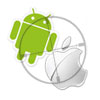 Data suggests that 2010 was a year of “more of the same” when it comes to computer threats, but 2011 likely won’t be, at least according to networking giant Cisco Systems, which released its Annual Security Report on Wednesday.
Data suggests that 2010 was a year of “more of the same” when it comes to computer threats, but 2011 likely won’t be, at least according to networking giant Cisco Systems, which released its Annual Security Report on Wednesday.
Cisco’s annual report on the state of security reiterated findings from some of the company’s earlier, quarterly reports, finding that cyber criminals stuck to tried and true methods adopted in recent years, including Web based exploits, social engineering attacks and attacks targeted at common applications. But the company said that 2011 may well be a turning point in the computer security world, as trends like mobility provide new opportunities for cyber criminals.
Cisco said 2010 was a year marked by both progress in the fight against cyber criminal organizations and online crime, and worrisome new trends. The company noted the coordinated take-down of spam-spewing botnets like Pushdo and Waldec, but also the appearance of Stuxnet, a sophisticated worm created to target and disable industrial control systems.
Looking at attacks, Cisco’s report, which culls security data from the company’s global security deployment and professional services groups, noted an increase in the use of Java exploits and continued interest in exploits for known and unknown (or zero-day) holes in common applications like Adobe’s PDF (Portable Document Format).
The past year also brought evidence that the worlds of cybercrime and state sponsored espionage may be merging. In December, for example, a holiday greeting card purporting to come from the White House and sent to government and Pentagon employees was found to contain the Zeus crimeware and modified to look for and siphon PDF, Word, Excel and other document types.
“Zeus is typically involved in data theft – low hanging fruit like credit card numbers,” said Mary Landesman, a senior security researcher at Cisco. ” In this case, it seems to be tailored to intellectual property theft and espionage.”
Looking forward to 2011, Cisco anticipates that existing cyber criminal operations behind malware like the Zeus crimeware will continue to diversify – adding features and investing in new techniques for avoiding detection. But the big trend may be the diversification of cybercrime beyond the domain of Windows and applications running on the Windows platform. Products from Apple Corp. as well as mobile devices such as the Android and iPhone smart phones, increasingly, hold the kind of sensitive data that criminals are interested in.
Mobile phones offer a host of new opportunities for cyber criminals, including loosely monitored application ecosystems that can be tricked into offering users spyware or crimeware, small screens that make it easy to conceal malicious activity and a population of users not yet attuned to issues like security or data privacy in the context of mobile phones, Landesman said.
The continued global recession – particularly felt in North America and Europe – will also contribute to cyber crime trends in 2011, Landesman said. Cisco said it expects to see growth in a wide spectrum of illegal activity. That includes money mules – ordinary citizens who act as the last leg in complex, global scams, shipping fenced goods overseas or helping to wire illicit funds to offshore accounts. White collar crimes such as intellectual property theft and cyber espionage are also likely to increase as employees -stretched for funds or discontented with their employers – decide to sell information or intellectual property assets on the black market.









